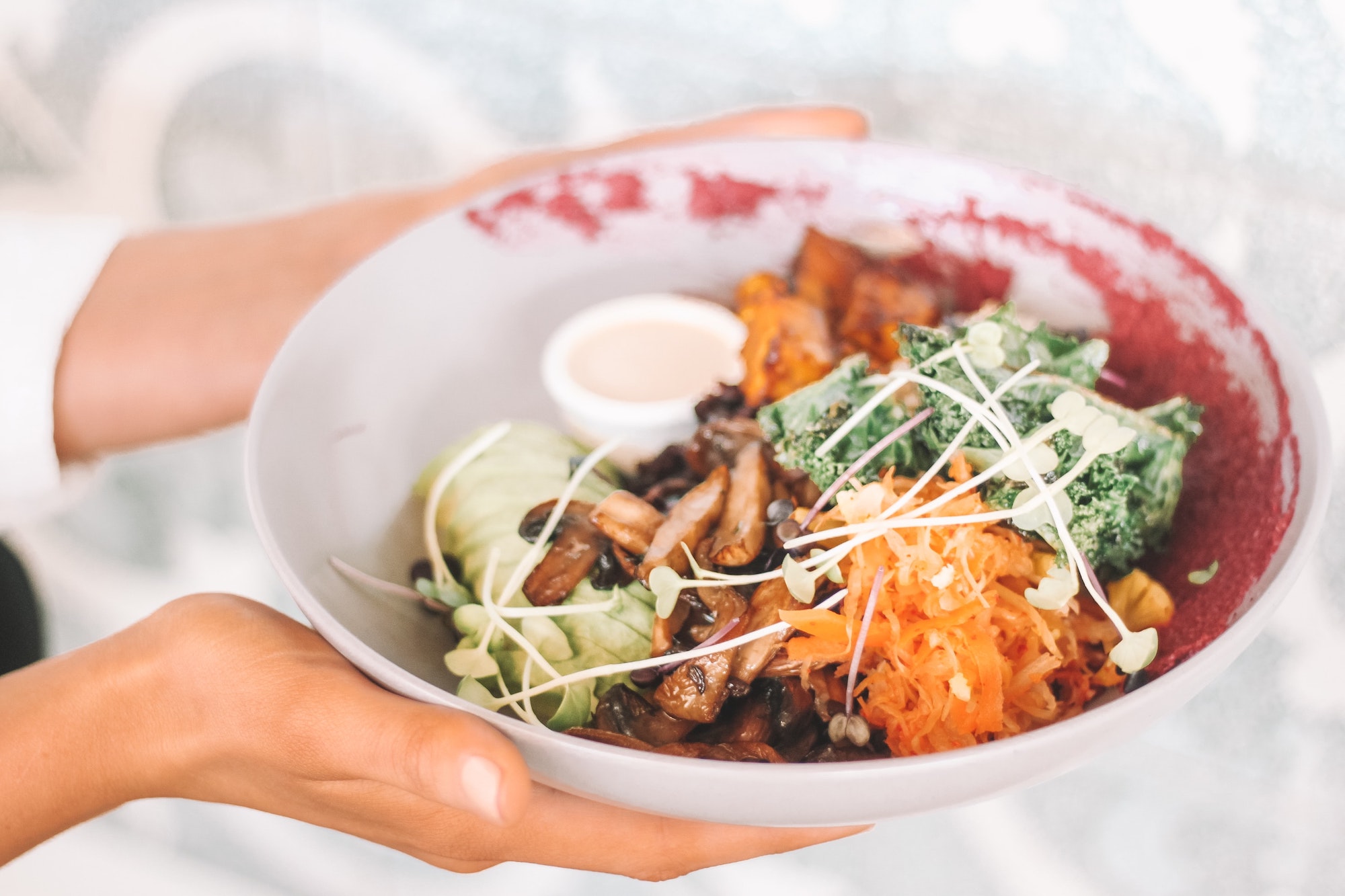We’re all looking for more energy these days, right? The days move by so fast and it can be a struggle to get everything done without feeling completely zapped by early afternoon. Before you run for the coffee and donuts — what about maca? This ancient root holds energizing properties and so many other benefits that may be just what you needed.
What is maca?
Biologically, maca is a relative of the radish. It’s not like those spring radishes you might serve up with salad or avocado toast, though. This food is better suited to give you the endurance needed to thrive in its climate — maca is a Peruvian root that can grow high up in the mountains in altitudes of 12,000 feet in cool, often very cold, weather. Maca is warming, energizing, and even a libido enhancer.
Evidence of maca farming dates back thousands of years, but it wasn’t until 1533 when Spanish explorers made its presence known. They reportedly sent it back to Spain as payment of tax and fed the root to their horses and livestock.
Politics took a toll on this prized root, pushing it toward extinction in the 1970s. But thanks to the careful seed harvesting of Indigenous cultures, maca has been able to thrive in recent years, with more than 10,000 acres planted every year.
Benefits of maca
Research continues to show maca has a surprising number of benefits. These are some of the more common effects people turn to maca for.
1. Supports healthy stress levels
Maca’s story is more than just its survival, though. In fact, it’s its survival that speaks to its benefits. It’s a hardy root, falling into the adaptogen category — a rare class of herbs that work with the body to adapt to and manage environmental stressors. This means its benefits can vary from person to person, but generally, adaptogens help to bring balance to the hypothalamic pituitary adrenal (HPA) axis. This interaction between glands plays a key role in how our hormonal and nervous systems respond to stress.
Of course, most of us know that stress is a precursor to a number of physical and mental health issues. The less stress the better we are for it. And finding that balance isn’t always easy! But maca may offer some additional support as well.
2. Supports healthy energy levels
One of maca’s attributes is boosting energy. But this isn’t that jittery short-lived coffee buzz many of us turn to throughout our days. In fact, it’s something you can use as an alternative to the coffee high-low to give you sustained and more natural feeling energy. But scientists don’t exactly know why maca boosts energy. It doesn’t contain caffeine, which is found in most foods associated with energy. It may be that its hormone- and stress-balancing properties allow the body to energize on its own.
3. Libido support
Who doesn’t love a good boost in the bedroom? Enhancing libido is one of the more anecdotal benefits of maca, but there’s some science to support the claims, too. Its reputation in the bedroom is widely regarded by both men and women. One 2015 study found women who were on antidepressants and took maca over 12 weeks saw a slight decrease in sexual dysfunction. But the National Institute of Health says there’s not enough evidence to warrant libido as a cure.
Some of its benefits in the bedroom may also have to do with its impact on stress levels. Reduced stress levels are linked to an increased libido. Maca consumption has also been linked to increased sperm count so there may be a benefit for men adding maca to their diet if trying to conceive. Some say it’s good for women trying to conceive as well.
4. Menopause support
Given maca’s reputation for reducing stress, boosting energy, and increasing libido, it’s not much of a surprise that it may offer women support as they experience perimenopause and menopause symptoms. Maca won’t interfere with estrogen levels, but one study found that women who consumed maca experienced fewer hot flashes than when not taking it.
There may be another maca benefit for women experiencing menopause: improved bone density. Maca has been shown to increase bone density — but not because of calcium. Maca is a rich source of polyunsaturated fatty acids, which play a key role in bone health.
5. Nutrient-dense
In addition to its stress- and hormone-balancing properties, maca is also a good source of a number of key nutrients including iron, vitamin C, potassium, and copper. Vitamin C is crucial for healthy stress levels, too.
How to use maca
Maca can be used in a number of ways. It’s typically found in powdered or supplement form — there’s no raw maca available in most parts of the world. You can add the powder to smoothies (always get the gelatinized kind so it’s easier to digest), you can add it to oatmeal, I like mine added to tea, like green tea or kukicha, or even a water-processed decaf English breakfast tea. Add a bit of oat milk and brown rice syrup — yummy.
Maca has a sweet, butterscotch, nutty flavor with just the slightest hint of its radish roots. Traditionally, the starchy root is consumed as food or in a tea. Nowadays, you can find maca in capsule and tincture form. But if you want to consume it the way the Peruvians do, use the dried, powdered form.
MyKind Organics Maca
Made only with Fair Trade and USDA-certified organic maca, MyKind gelatinizes the maca so it’s easier on your stomach. We also add in probiotics to give your gut health a bigger boost. A little goes a long way! A teaspoon is all you need to feel the maca benefits.
As with any supplement, you should always speak with your primary care physician before adding a supplement to your diet.




